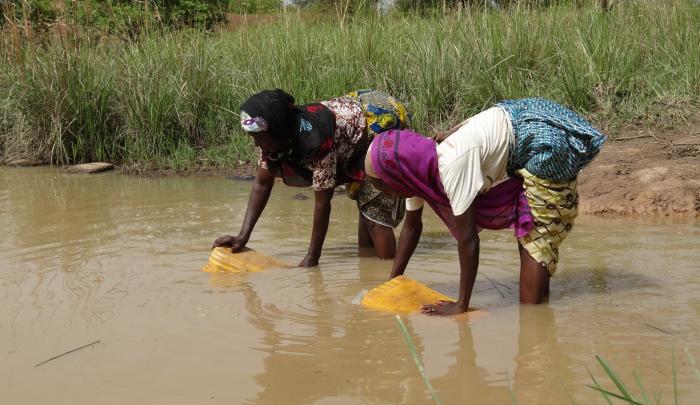Diverse Perspectives on Early Rains in Kadjebi District
Farmers in the Kadjebi District of the Oti enclave have expressed a wide range of opinions about the early rains that have occurred during the minor season. These varying viewpoints highlight the uncertainty and challenges that farmers face when dealing with unpredictable weather patterns.
Optimism Among Some Farmers
Some farmers are optimistic, believing that the current rainfall patterns could continue until September and possibly even beyond. They argue that consistent early rains could lead to increased yields and improved agricultural productivity, offering a hopeful outlook for the season. This optimism is fueled by the belief that favorable weather conditions can significantly enhance crop growth and overall farm output.
Mr. Nicholas Kwame Fato, an agriculturist and CEO of Nicholas Golden Farms Kitten, shared his positive outlook regarding the current rain patterns. He stated that he believes the rainfall will extend beyond September, viewing this as a positive omen for farmers in the region. His insights reflect a growing sentiment among some farmers who are encouraged by the early rains and the potential for favorable growing conditions.
Fato also pointed out that recent cloud formations appear promising, reinforcing his belief that the rains will be sustainable throughout the upcoming season. As the Chairman of the Volta Regional Seed Producers Association, he emphasized the importance of adapting to changing weather patterns and maintaining hope for a successful harvest. He encourages other farmers to remain optimistic and prepared, highlighting the critical role of weather in agriculture and the resilience of farmers in the face of uncertainty.
Caution and Concerns from Other Farmers
On the other hand, a segment of the farming community is more cautious. They draw parallels to previous years when early rains were followed by dry spells, particularly during the major season. This group fears that the current precipitation might not be sustainable, echoing concerns from past experiences where an unexpected shift in weather patterns led to crop failure and lower harvests.
Mrs. Gloria Asimenu-Gbefo, a cocoa, maize, and vegetable farmer based in Dodi-Akum, expressed her concerns about the current rainfall patterns. She believes that the frequency of rain may not be sustainable, as daily rainfall is unrealistic and may not provide the consistent moisture needed for optimal growing conditions. She cautioned fellow farmers to exercise caution when planting their maize this season, suggesting that erratic weather patterns could pose challenges for crop establishment and growth.
Her pragmatic approach underscores the importance of monitoring weather conditions closely and making informed decisions to mitigate potential risks. By sharing her perspective, Mrs. Asimenu-Gbefo aims to encourage farmers in the district to consider the unpredictability of the weather in their planting strategies to safeguard their livelihoods.
Expert Advice and Adaptive Strategies
Agricultural experts have advised farmers to remain flexible, implementing diverse planting strategies and incorporating drought-resistant crops to mitigate risks associated with unpredictable rainfall. As farmers navigate these mixed opinions, many are taking proactive steps to prepare their fields, hoping to capitalize on the early rains while remaining vigilant for any changes in weather patterns that could affect their future harvests.
Mr. Rashad Shaibu, the Kadjebi District Director of the Department of Food and Agriculture, spoke about the early rains this season. He emphasized that while it is still too early to definitively predict whether the rains will extend beyond July and August, historical patterns suggest that rainfall typically does not persist beyond mid-August. Given this uncertainty, he advised farmers to consider planting early maturing crops during this growing season. By choosing varieties that mature quickly, farmers can mitigate the risk of drought and ensure a more successful harvest before the potential decline in rainfall.
His guidance aims to help local farmers adapt to the changing weather patterns and safeguard their agricultural output amidst uncertain climatic conditions. The combination of optimism and caution among farmers, along with expert advice, highlights the complex nature of agriculture in the region and the need for adaptive strategies to ensure sustainable farming practices.







